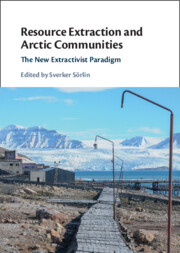Resource Extraction and Arctic Communities
For decades, a post–Cold War narrative heralded a “new Arctic,” with melting ice and snow and accessible resources that would build sustainable communities. Today, large parts of the Arctic are still trapped in the path dependencies of past resource extraction. At the same time, the impetus for green transitions and a “new industrialism” spells opportunities to shift the development model and build new futures for Arctic residents and Indigenous peoples.
This book examines the growing Arctic resource dilemma. It explores the “new extractivist paradigm” that posits transitioning the region’s longstanding role of delivering minerals, fossil energy, and marine resources to one providing rare earth elements, renewable power, wilderness tourism, and scientific knowledge about climate change. With chapters from a global, interdisciplinary team of researchers, new opportunities and their implications for Arctic communities and landscapes are discussed, alongside the pressures and uncertainties in a region under geopolitical and environmental stress. This title is also available as Open Access on Cambridge Core.
sverker sörlin is a defining voice in environmental history and a prize-winning author of scholarly and nonfiction books on intellectual history and on the history and politics of climate change. He has a career-long interest in natural resource extraction politics and history, and has chaired Sweden’s national committee for the International Polar Year 2007–2009.

